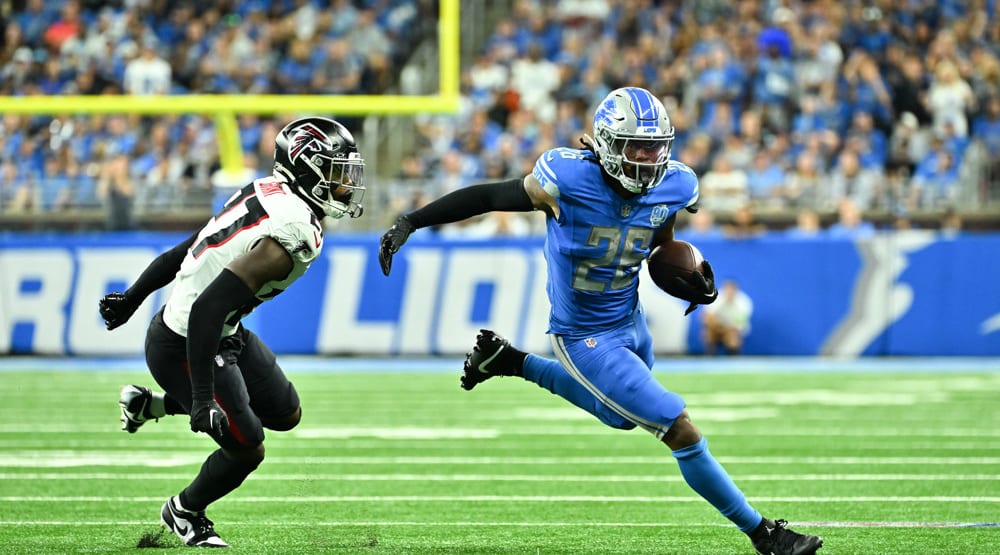First, it feels great to be writing again. I have been off all 2018 and admittedly it took a while for the creative juices to start flowing on this article. But I think I have some good talking points to review as we enter the season.
For most people, all August and first week of September are spent researching and preparing for season-long drafts. A lot of folks do not even look at Week 1 DFS until the first game of the season or Sunday morning of Week 1. This is where you can gain an edge.
Having a DFS gameplan will help you navigate through each week. I will give you some tips about what to do before and during the season. Some of these are beginner level, but others will relate to any level of player.
Decide Your Budget
Figure out your budget for the whole season now or a set amount you want to play each week. For the purpose of this article I will use $350, or about $20 per week. Depending on your bankroll, you can increase these numbers as needed. Of course, if you happen to hit a large win in a tournament then you can adjust your play accordingly.
I would advise you break up your bankroll into four months with heavier emphasis on September. The reason you want to play more then is the competition is the softest. More people will jump into DFS the first month and if they lose, they
First, it feels great to be writing again. I have been off all 2018 and admittedly it took a while for the creative juices to start flowing on this article. But I think I have some good talking points to review as we enter the season.
For most people, all August and first week of September are spent researching and preparing for season-long drafts. A lot of folks do not even look at Week 1 DFS until the first game of the season or Sunday morning of Week 1. This is where you can gain an edge.
Having a DFS gameplan will help you navigate through each week. I will give you some tips about what to do before and during the season. Some of these are beginner level, but others will relate to any level of player.
Decide Your Budget
Figure out your budget for the whole season now or a set amount you want to play each week. For the purpose of this article I will use $350, or about $20 per week. Depending on your bankroll, you can increase these numbers as needed. Of course, if you happen to hit a large win in a tournament then you can adjust your play accordingly.
I would advise you break up your bankroll into four months with heavier emphasis on September. The reason you want to play more then is the competition is the softest. More people will jump into DFS the first month and if they lose, they will stop playing. This is when you can build your bankroll.
Play up to $40 per week in September, and assume you do not lose all of it every week. This is double what you will normally play October-December. Do not go all in Week 1 with your whole bankroll. We need to see teams play first and get a feel for things.
Determine Your Risk
Do you want to win life-changing money, play for fun or grind out a profit at the end of the season? If you want to win-life changing money play one lineup in one contest, preferably the $20-$25 entry with a large prize. But understand, your likelihood of winning is very low. As long as you know the risk coming in, the play is fine.
If you want to play for fun, play in some head-to-heads, 50/50 and smaller leagues like 3-man, 10-man, 20 man.
If you want to grind out a profit, you need to play a mix of "cash" games and tournaments each week. The ideal mix is to play 80 percent cash games and 20 percent tournaments. The cash games pay out 50 percent of the field, which is a good way to insulate your bankroll. While the 20 percent of tournaments gives you a chance at a big score.
Look to play single entry-only tournaments. Early on look for the smaller fields of less than 500 entries. It's fine to fire one lineup at a lottery ticket type of contest, but limit the amount. The worst feeling is you lose that contest and kill your bankroll.
Decide on a Single or Multiple Lineup Strategy
One of the most common strategies that players will employ is building a cash game lineup and a tournament lineup. The cash game lineup is focused on the most consistent and safest players, whereas the tournament lineup is all about going for broke. If you decide to just play one lineup, it is OK to play a cash-game lineup in tournaments. But you want to make sure you only play then smaller-field tournaments mentioned in the previous paragraph (single entry, less than 1000 entries).
When you play in a large-field, multiple-entry tournament, you must realize that some players will have up to 150 lineups in the contest. Most new players cannot fathom or comprehend it. Most of the lineups will be built around a stack (multiple skill position players from the same team) to maximize correlation. One of the biggest mistakes that beginner and intermediate players make is putting the wrong lineup in the wrong contest.
Budget Your Time
One of the first things I ask a DFS player is how much time he spends researching and building lineups. You would be amazed at the answers. I have heard up to 20 hours a week and the person was playing less than $100 a week. Do the math. It does not make sense. The more time you spend researching does not guarantee better results. If anything, it is paralysis by analysis and you end up second guessing. Spend about 2-3 hours a week on DFS research. Find one or two sources you trust and build from there.
Research Before Sunday
The worst thing you can do is make a lineup right before kickoff on Sunday with little or no research. Believe it or not, a lot of new players make this mistake every week. They get the impulse or "itch" to put in a lineup and get some action. Well, in this case dead money is found money and you can take advantage of that.
Trust Your Gut
It is Sunday and 30 minutes before gametime. You start to listen to Fantasy Sports Radio or another show. The "experts" like different players than you, so time to scrap your lineup and redo it. WRONG. You spent the time researching all week. These are your players you picked. Yet time after time I hear about people tinkering with their lineups only to regret what they did. Just Trust Your Gut. Unless there is a key injury impacting the player performance, set it and forget it.



























